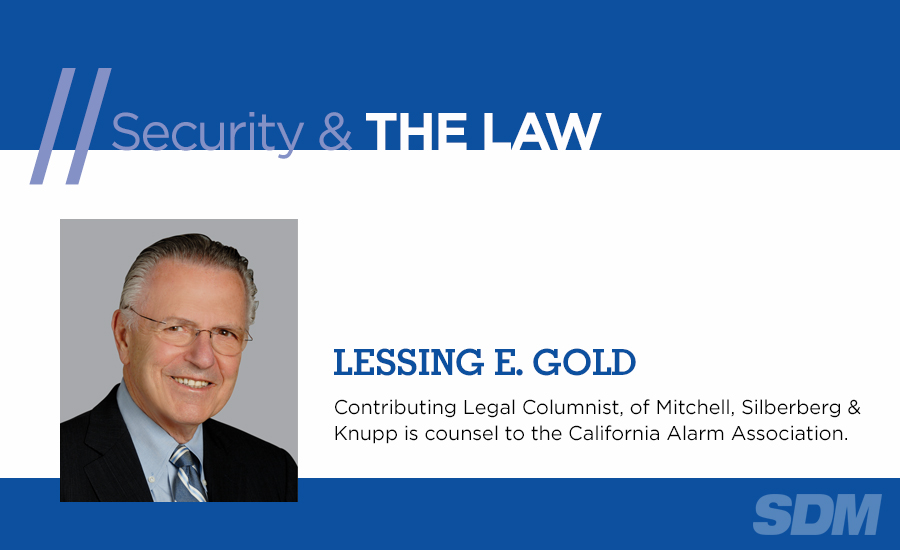Security & The Law
Can Insurance Company Sue Alarm Company in Subrogation Case?
SUBROGATION

A recent case was filed by an insurance company as subrogee against an alarm company in Florida under the choice-of-law rules. The insured contracted with the alarm company to provide monitoring of its business facility. Under the agreement, the alarm company was to notify the insured’s emergency listings and the police if an alarm was tripped. The insured’s facility was broken into and inventory and equipment was stolen, and the alarm company did not notify anyone. The insurance company paid the claim to its insured and sued the alarm company for contractual subrogation and subrogation in gross negligence.
In insurance, subrogation is the principle by which an insurer, having paid the losses of its insured, may recover from the third party legally responsible for the loss. So the insurance company, as a subrogee of its insured, stands in the shoes of its insured and is subject to the same defense.
The alarm company’s main argument was that the insured waived the right of subrogation when it signed the contract, so the insurance company lacks standing to sue as a subrogee. The waiver of subrogation states that the customer “agrees to obtain insurance permitting said waiver without invalidating coverage. Customer does hereby for itself and other parties claiming under it release and discharge the alarm company from and against all claims arising from hazards covered by customer’s insurance, it being expressly agreed and understood that no insurance company or insurer will have any righty of subrogation against the alarm company.”
The insurance company presented several arguments to overcome the waiver of subrogation provision. First, they claimed did not agree to the waiver of subrogation in the contract. The insurance company also claimed that it received no consideration, which it argued would be required for the contract to be binding. The insurance company, however, is suing as the subrogee of the insured and is therefore placed in the insured’s position
The insurance company also claimed there is no evidence that the insured knew about the waiver of subrogation clause. The fact that the insured executed the agreement is enough to support that the contract was binding.
The insurance company’s claims and the alarm company’s motion to dismiss was granted.
READERS ASK
Q: One of my central station operators has refused to return to work because he indicates that one of his family members has an underlying condition and could be susceptible to the COVID-19 virus and he is afraid. Can I terminate his services??
A: The probability is you cannot terminate his services as many states and Federal Family First law mandates that it is a valid excuse for an employee if a family member is susceptible to the virus. I would, however, check with your local attorney to find out what the local state or municipal laws may be which covers this situation, particularly since there may be economic responsibilities included for the employer.
Looking for a reprint of this article?
From high-res PDFs to custom plaques, order your copy today!





